“I am a traveller. I have been enormously fortunate to have visited over 60 countries and seen some of the great wonders of the natural world. I have also had the great privilege to have co-founded the Born Free Foundation in 1984, and to have spent almost all my adult life working for the protection, conservation and care of wild animals, both in captivity and in the wild.
I believe international travel opens new perspectives, encouraging wider understanding and cultural respect. Today, hundreds of millions of travellers explore, investigate, and enjoy far-flung destinations, taking part in experiences they might have only dreamed of, and bringing back memories to treasure for a lifetime.
It is widely-acknowledged that tourism can be an incredibly powerful force for good. However, as with so many things, there is another side to the coin, and activities that seem innocent on the surface can have negative consequences.
 Responsible travel companies like Eden Luxury Travel recognise the responsibilities they have to their guests, to the destinations they offer, and to the itineraries they create. They’re clearly determined to make sure they deliver on those responsibilities, ensuring that some of the world’s most beautiful places, its people, culture, wildlife, and environment are there to enjoy, long into the future.
Responsible travel companies like Eden Luxury Travel recognise the responsibilities they have to their guests, to the destinations they offer, and to the itineraries they create. They’re clearly determined to make sure they deliver on those responsibilities, ensuring that some of the world’s most beautiful places, its people, culture, wildlife, and environment are there to enjoy, long into the future.
That’s why I’m so delighted that Eden Luxury Travel is committed to Responsible Travel.
The Born Free Foundation has been developing advice and guidance for travellers and the travel industry for decades. We were the main contributor to the Association of British Travel Agents’ (ABTA) Animals and Tourism Guidelines, widely-regarded as setting evolving industry standards relating to the interface between animals and tourism, identifying tourism-related activities that either support, or in some cases, harm individual animals, wildlife, and the environment.
The relationship between travellers, wild animals and nature is as varied and complex as the travel industry itself so, over the next few paragraphs, I’ll focus more on practices that illustrate wider concepts – basically, what is good, what needs careful consideration, and what is completely unacceptable.
“The Born Free Foundation has been developing advice and guidance for travellers and the travel industry for decades”
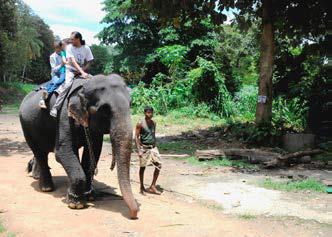 Wild animals are just that – wild. Seeing a wild animal perform an activity on demand should send out warning signs. Riding elephants; swimming with dolphins; petting lion or tiger cubs; attending events, like circuses, that involve performing wild animals... these should all set alarm bells ringing.
Wild animals are just that – wild. Seeing a wild animal perform an activity on demand should send out warning signs. Riding elephants; swimming with dolphins; petting lion or tiger cubs; attending events, like circuses, that involve performing wild animals... these should all set alarm bells ringing.
The ‘ankus’ – a metal spiked stick in the hand of an elephant trainer or mahout – is a give-away. This is not consensual behaviour, it is enforced. Juvenile elephants frequently have their ‘spirit broken’ in the most brutal way, using crush cages to make them more pliant. See more at
www.bornfree.org.uk/animals/asian-elephants
The dolphinarium is not a natural habitat, however large it seems to us. It is an environmental desert, devoid of all life, except the dolphin who, cursed with a fixed smile, is kept in this chemically controlled tank for life, permanently removed from the ever-changing sea and the social context of dolphin society for which it has evolved. See more at
www.bornfree.org.uk/marine-captivity
Petting baby lion and tiger cubs fuels despicable activities such as ‘canned hunting’. Cubs are taken from their mothers at just a few days old, reared by paying volunteers who believe them to be orphaned, subsequently exploited by those selling ‘walking with lion’ packages, and ultimately shot, in captivity, by discount trophy hunters. Their body parts, minus the head, may then be exported for use in Traditional Asian Medicine. See more at
www.bornfree.org.uk/storage/media/content/files/Publications/ Born_Free_Lion_Breeding_Report.pdf
BFF, together with partner Olsen Animal Trust, are proud to be supporting ‘Claws Out’ – an initiative to end cub petting practices in South Africa. Further information can be found at
www.claws-out.com
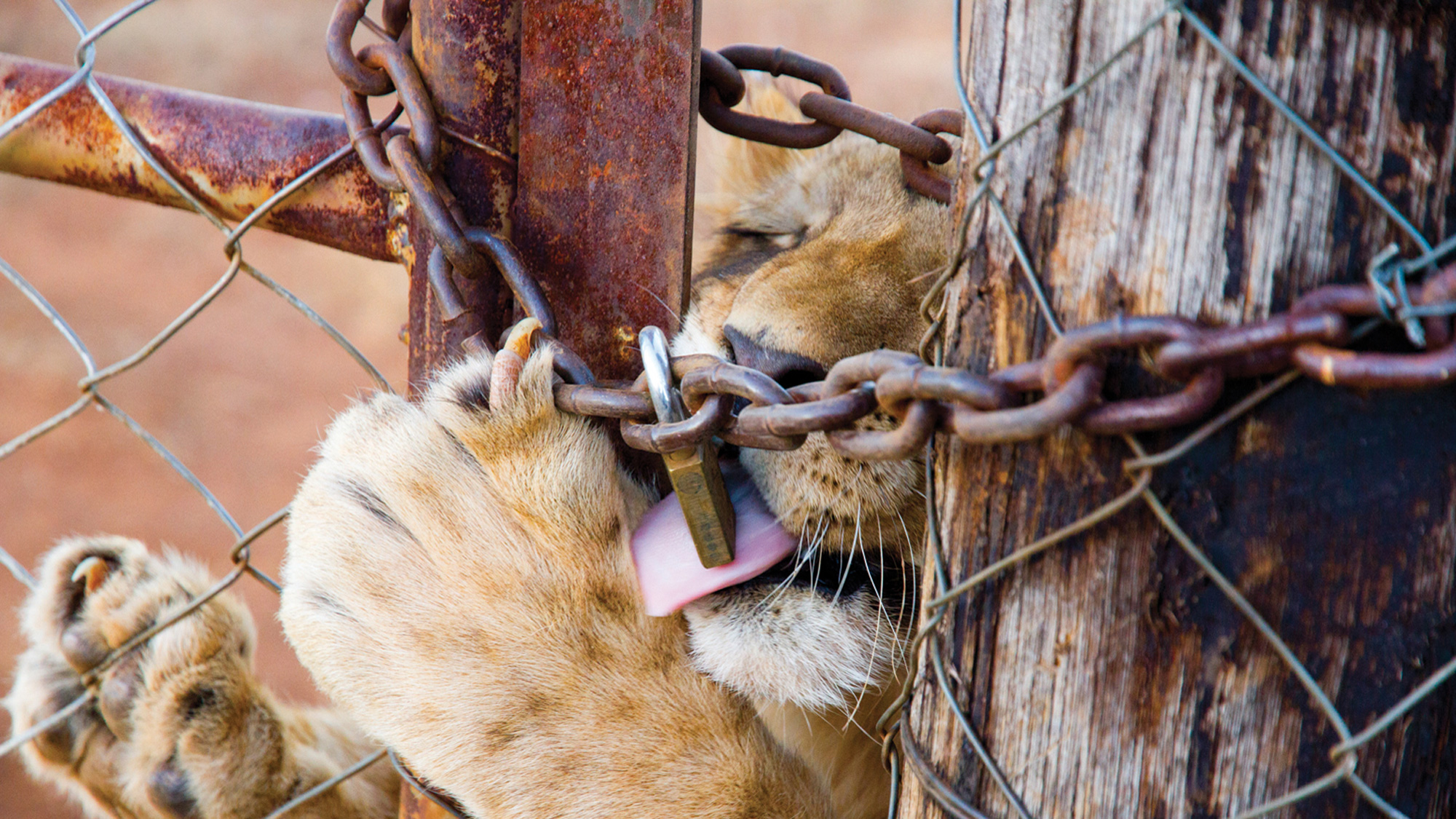 Circuses and roadside zoos represent further forms of wild animal exploitation, where animals are kept in totally inadequate captive conditions and, particularly in the case of circuses, compelled to perform acts and unnatural behaviours before being moved on to the next venue. Such places are sustained by people who buy a ticket. The logic is clear. While we can humanely hasten the end of such cruelty and suffering by simply not attending, it is also important to develop long-term, lifetime care facilities like Pangea, the proposed European sanctuary for elephants relinquished by their owners or confiscated by the authorities.
Circuses and roadside zoos represent further forms of wild animal exploitation, where animals are kept in totally inadequate captive conditions and, particularly in the case of circuses, compelled to perform acts and unnatural behaviours before being moved on to the next venue. Such places are sustained by people who buy a ticket. The logic is clear. While we can humanely hasten the end of such cruelty and suffering by simply not attending, it is also important to develop long-term, lifetime care facilities like Pangea, the proposed European sanctuary for elephants relinquished by their owners or confiscated by the authorities.
“Circuses and roadside zoos represent further forms of wild animal exploitation, where animals are kept in totally inadequate captive conditions”
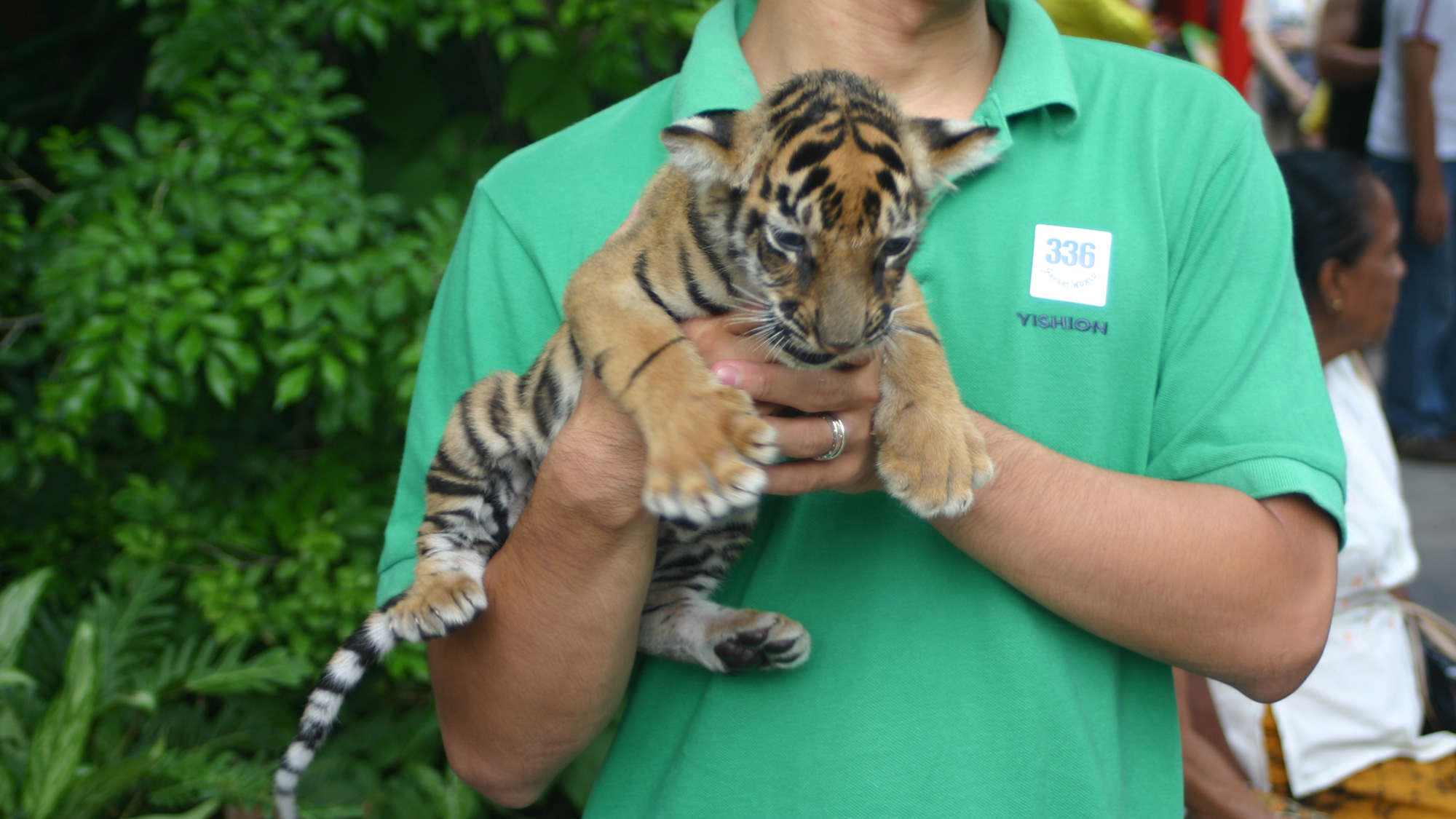
Many wild animals displayed in restaurants and shopping malls, used as photo props, or featured in so-called ‘sanctuaries’, where the emphasis is on making money and where animal welfare takes a low priority, may have been caught from the wild, or stolen from their families and their natural habitats. Many die in the process and their often short, captive lives are characterised by abuse, neglect and suffering.
These are just some of the practices to avoid and, if possible, reported. See more at
www.bornfree.org.uk/report-animal-suffering. Of course, it’s not all bad. Some activities can be benign or beneficial, but in order to be sure travellers should do some research, pay attention to detail – and choose the right travel company!
If a place calls itself a sanctuary does it adhere the Global Federation of Animal Sanctuaries (GFAS) guidelines, which has a no-breeding policy, a non-commercial animal acquisition policy and a zero public interaction policy? See more at
www.sanctuaryfederation.org If a facility offers ‘volunteer experiences’, are these genuine? Are ‘orphaned animals’ truly orphaned, or taken away from their natural mothers shortly after birth? What is the future of these animals? Will they be returned to the wild or, if not, provided with high quality lifetime care in the hands of experts who understand both their individual and species needs?
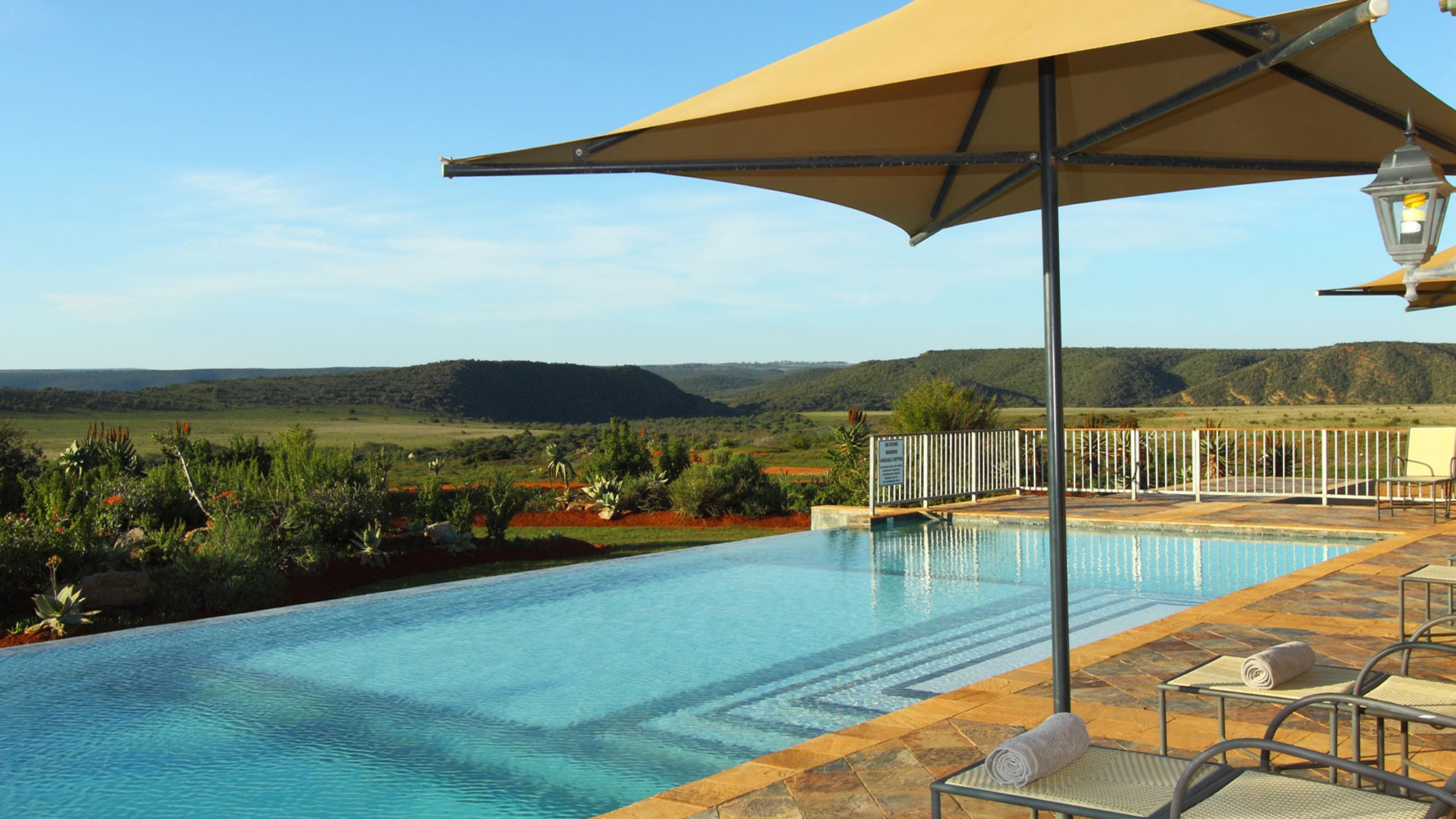 Born Free and our partners at Olsen Animal Trust (www.olsenanimaltrust.org) only support genuine sanctuary operations like those at Shamwari (www.shamwari.com/activities-2/born-free-big-cat-sanctuaries), in South Africa’s Eastern Cape, where conservation goes hand in hand with lifetime care and education.
Born Free and our partners at Olsen Animal Trust (www.olsenanimaltrust.org) only support genuine sanctuary operations like those at Shamwari (www.shamwari.com/activities-2/born-free-big-cat-sanctuaries), in South Africa’s Eastern Cape, where conservation goes hand in hand with lifetime care and education.
Even where there’s no element of captivity, what we as travellers do and don’t do can have a marked impact on the well-being and even survival of wild animals.
Many of us dream of going on safari – the ultimate wildlife experience. Carefully managed and planned, with consideration for the environment, the people, and the animals we will encounter, can make this one of the most fulfilling experiences imaginable. But driving ‘off road’ and destroying often fragile habitat; getting way too ‘up close and personal’ with wild animals, disrupting their lives and altering their behaviour; leaving litter on which animals can choke or be poisoned; over-using scarce natural resources like water; disrespecting the cultures of local human communities – these can all have negative impacts: not only on the individuals involved, including each and every traveller, but on the sustainability of safaris in the future.
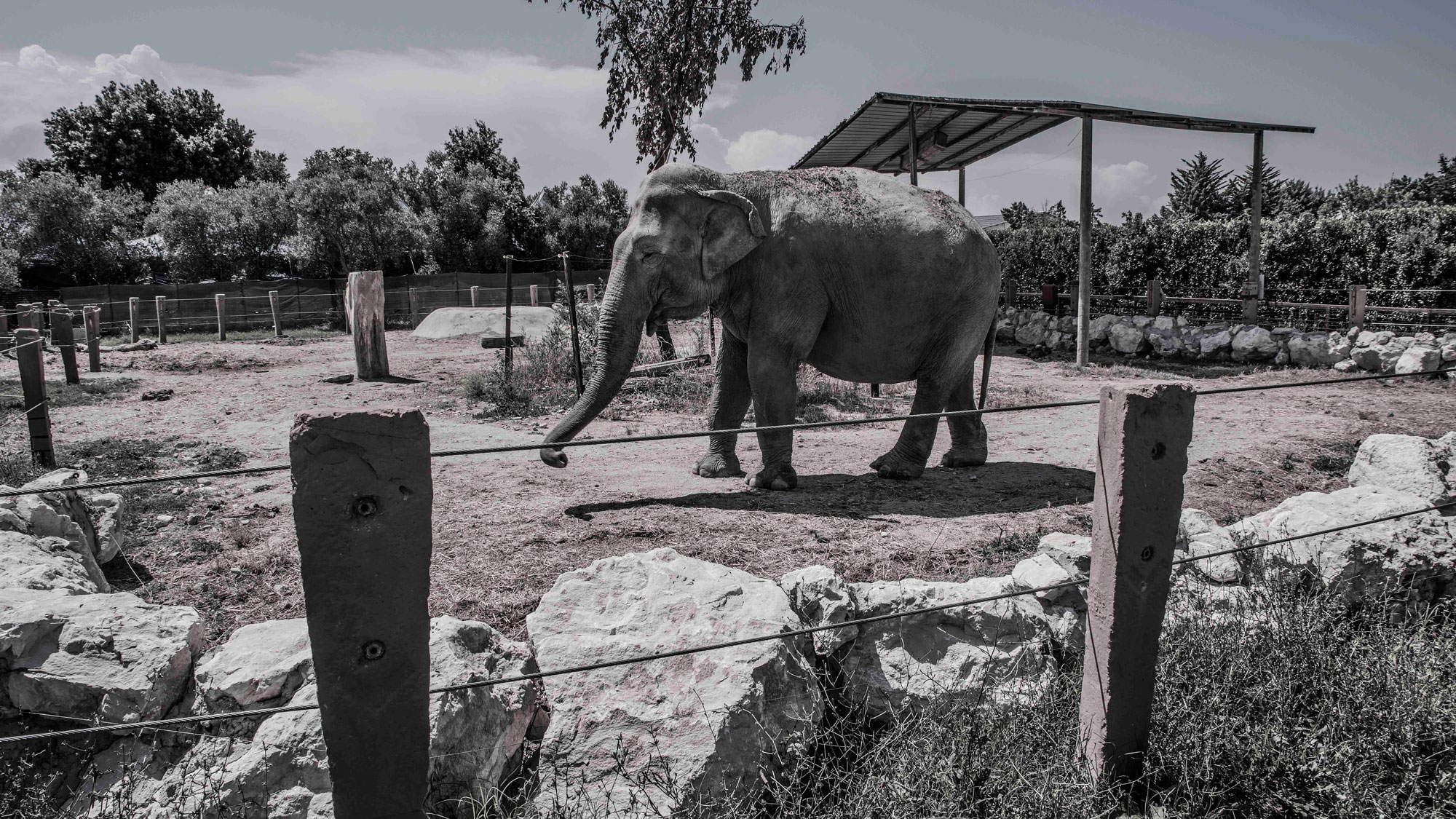 There are many, many great organisations involved in the protection of wildlife and the environment, and the care and protection of individual wild animals.
There are many, many great organisations involved in the protection of wildlife and the environment, and the care and protection of individual wild animals.
Born Free has, since 1984, championed the needs of the individual. Our rescue centres in South Africa, Ethiopia and the USA deliver the highest quality lifetime care for the animals that we are responsible for. Our conservation efforts on behalf of species such as lions, tigers, elephants, chimpanzees, gorillas, giraffe, pangolins, and Ethiopian wolves, adhere to our ‘compassionate conservation’ philosophy which enhances the survival of the species but never forgets the wellbeing of the individual. Our policy work directed at ending the ivory trade; preventing the revival of the rhino horn trade; the ending of the trade in wild animals as ‘pets’; the phasing-out of circuses, traditional zoos, dolphinariums and marine parks in favour of investing in effective conservation in the field, have all stood the test of time, and delivered real results. See more at
www.bornfree.org.uk/storage/media/content/files/Publications/ONE_CLICK_AWAY_REPORT_SPREADS.pdf
In partnership with like-minded organisations like Olsen Animal Trust, Species Survival Network, and our sister organisation Born Free USA, the Born Free Foundation is here for the long-haul, championing wildlife in need all over the world. See more at www.bornfreeusa.org/ home.php and
http://ssn.org/
Responsible travel companies like Eden Luxury Travel have a vitally important role to play, offering inspirational products, informing their clients, and providing information so that wise, sustainable choices can be made.
But in the end, it comes down to personal choice. Which is why I want to encourage you to be an ambassador for wildlife. Choose to be part of a travel culture that allows you to have the most fulfilling and inspirational adventures, safe in the knowledge your decision can bring positive benefits to all. It’s the right thing to do!”
www.bornfree.org.uk
www.bornfreeusa.org